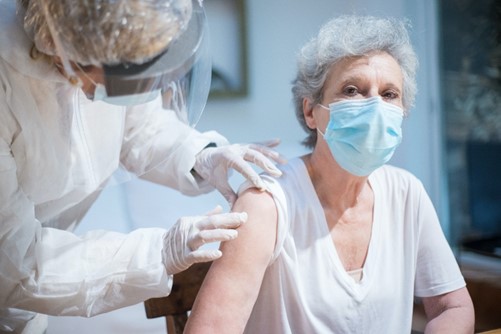Image Credit: Pexels (Kampus Productions)
Covid-19 Vaccine and Healthcare Responsibility to Begin Falling on the Patient
The Department of Health and Human Services (HHS) is scheduled to hold a planning session on Aug. 30 that will include representatives of stakeholders involved with Covid-19 prevention and treatment. This includes pharmaceutical companies, state health departments, health insurers, and pharmacies. Under the direction of the Biden administration, the HHS plans to end the practice of taxpayer-funded Covid-19 vaccines and Covid-19 therapies.
Objectives
The goal of the planning session is to shift more control of pricing and coverage to the healthcare industry. This could increase costs for consumers and generate sales for companies.
Since the start of the pandemic-related programs, the expectation has been that the costs associated with Covid-19 shots and therapies would shift to individuals choosing them and away from the federal government. With funding for the pandemic response disappearing, along with the global outbreak itself, officials are now mapping out the transition of care to fall on the users.
Businesses Affected
The earnings and market implications to certain companies could be significant, depending on the outcome of the planning sessions. As of February 2022, pharmaceutical companies, including Pfizer (PFE) and Moderna (MRNA) reported at least $79 billion in combined global sales of Covid-19 vaccines and therapies for 2021. Pfizer also reported $8.1 billion in global sales during the second quarter for its Covid-19 treatment, Paxlovid.
As of mid-February, no money was left in HHS’s public-health and social-services emergency fund for healthcare providers. This month (August), the administration stopped supplying monoclonal antibody treatments. Eli Lilly & Co. (LLY) now focuses on sales of its Covid-19 monoclonal antibody treatment to states, hospitals, and other healthcare providers. As far as vaccines, the Biden administration has already signed purchase agreements for updated doses for the fall.
The impact of shifting vaccine procurement to businesses means that each insurer and pharmacy benefit manager may be negotiating with drug manufacturers. The impact on prices is they would likely be higher than what the federal government has paid, and health insurance premiums could come under upward pressure as well.
Timeframe
Shifting payments for Covid-19 drugs and vaccines to the commercial market is expected to take months. During the upcoming August meeting, officials and company representatives are expected to discuss regulatory issues and access to vaccines and treatment, along with reimbursement and coverage, for the uninsured.
The change presents challenges, including what, if anything, to do with roughly 30 million people without health insurance. Currently, the federal government has been purchasing Covid-19 vaccines and treatments and making them available at no user cost during the pandemic. Medicaid and Medicare don’t cover antivirals; they were approved under an emergency-use authorization. This will all have to be addressed.
Take Away
The use of government funding during the pandemic was a boon to many companies. These companies may now be asked to embrace something closer to the “old normal” which could be a more difficult road. The timeline toward transitioning is long and there are many considerations for each stakeholder affected.
Managing Editor, Channelchek
Suggested Content
 Monkeypox Treatments and Vaccines are Creating Investor Opportunities
|
 Where are Consumers Most Likely to Spend Their Leisure Budget?
|
 Biotech Stocks Outperformance Factors – Will they Continue?
|
 Michael Burry Says the Cure is Worse than the Disease
|
Stay up to date. Follow us:

|
